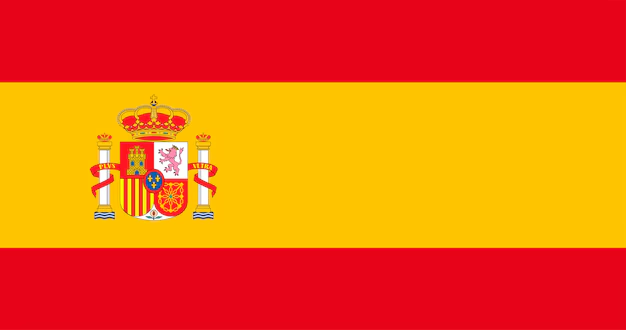Read the article directly on Blog pop
When we reread this text of Pentecost, could we not accuse God of “creating the buzz”? What does it mean to create a buzz: to get people talking about yourself, a lot, for the sole purpose of doing yourself to get the maximum amount of publicity. The important thing is the publicity, not what the person doing the big publicity says.
Because in this story, one of the best-known stories in the New Testament, there are about 250 words to tell us where it happens, what we hear, what we see, a story of tongues of fire , of people who speak in tongues… But what do they hear in their language? They tell them what what apostles ? We know almost nothing about it… it can be summed up in 4 words out of 250: the wonders of God; the mighty works of God. It was so not remembered what was said during this spectacular event, the theological message got through so little could have to follow that Peter spoke again to explain the meaning in a long speech almost three times as long
In the 1960s, researcher Mac Luhan said that with modern media, the medium was more important than the message, the way of saying things was more important than what was said. So certainly God is very modern, modern in the 60s or modern today if he already knew how to create a buzz 2000 years ago. But we could accuse him of having preceded at Pentecost the worst of modernity: the media more important than the message – the fireworks show of Pentecost for just 4 poor little words of substance – the wonders of God -, of creating the buzz, huge publicity since we are still on it 2000 later, and today throughout the world in all churches… but not to say much.
So, yes, if we remain in our position as a reader who seeks in the text what is said to be explained by these unbridled tongues, and then there are only 4 little words: the wonders of God.
An experiment
However, we know that this text says much more in substance than these 4 little words and that this text, if it speaks to us, is about other things than “wonders of God”. This text touches us because it tells us an experience – not a speech like what Pierre does next. But a special experience.
An experience that is lived together by God – in the form of his spirit, the disciples and the crowd. An experience where God is not up there but between all people, making the connection with them. An experience where people come from all over the world and there, they all understand each other. It is first of all an experience of communion, a horizontal whole. In four words – 4 other little words – it would be: All brothers and sisters.
Another experience is lived. Pentecost is traditionally opposed to the myth of Babel. In Babel, the project failed because they started speaking different languages. There too, we speak different languages but it works: the first Christian community – 3000 people received on baptism in the end – builds up. There is another opposition with Babel, if you remember Muriel Menanteau’s post last week on this blog: in Babel, humans were authoritatively assimilated to the bricks used to build the tour, all the same, all square, while they could have been living stones, we could have built the tour with stones, all different in their shape, their colors, their imperfections. A Pentecost, about an experience where certainly some speak and others listen, but where everyone hears in their own language. There are no less than 17 origins cited – or 12 depending on the comment on the account -, and therefore a good deal of language, not to mention that they probably also spoke languages which do not exist – you know the famous speaking in language which are still practiced today in so-called charismatic churches. They therefore live an experience where horizontality, communion, Fraternity and equality do not live in uniformity – as in Babel – but in diversity. In four words – 4 other little words – we could say: United in diversity.
Speak a language other than words
So, certainly, the author of the Pentecost story – or God when he organized this mess – could have saved. Instead of 250 words, three times four words – The wonders of God; All brothers and sisters and United in diversity. 12 instead of 250. Imagine the number of trees saved in 2000 years! But you can see that it wouldn’t have had the same effect. I don’t know about you, but I don’t remember tongues speaking “of the wonders of God,” but I do remember the account of this incredible experience. And basically messages: All brothers and sisters and United in diversity. God made the choice to speak through lived experience, the experience shared by the story and not only by ideas, words. And why?
There is a sentence in the text that I did not notice in my previous studies of this text: “they began to speak in other tongues as the Spirit gave them to express.” You don’t speak the same language depending on what you have to say. We don’t speak the same way to a baby, a child and an adult. Someone who speaks French well or not. They say that French is the language of love. And all French rockers will tell you, English adapts better to rock’n’roll. Depending on what you have to say, you don’t speak the same language. Well there are messages whose language is words. And messages whose language is experience.
All brothers and sisters. We know well that no matter how much we hear it, from parents, from our sisters and brothers, from political leaders, it is experience, what we have experienced that makes us hear it and believe it…. Or not. Including certain words – rejection of contempt or on the contrary love – the fact of hearing it is that she has chosen that we live because they do us harm or good. Hearing them is first of all an experience.
United in diversity. This may well be the slogan of Europe, but there too, it is because I live the experience, that of being recognized in my difference without being pushed aside, which means that I hear it, I believe it… or not. And there too, the words – which express rejection, contempt, are also experiences.
Moreover, is this language of experience not what we live in our Fraternities? When we set up the Fraternity of Gennevilliers, the work consisted of giving people confidence, so that they could feel capable of acting and being heard. We didn’t give them speeches, it was in concrete action with them that they were able to achieve what they were capable of. We know in our Fraternities, it is a chosen thing to tell the people we welcome, All brothers and sisters, united in diversity, that here the Fraternity lives, but it is because it is lived in the Frats – or the local church – that we hear the message. Or that it is not experienced and that we do not hear it.
Gospel Experiences
We often wonder if the Gospel and Jesus are “pronounced” enough in our Fraternities. But we are not in our fraternities as at Pentecost: it is understood because it is experienced. The Gospel is proclaimed because people have Gospel experiences: “All brothers and sisters”, “united in diversity”, “you can do it”, “you were crushed, you stand up”. Experimented. Lived. So heard.
There are messages – love, trust, self-confidence, Fraternity, the Gospel – whose language is first and foremost experience. As the last verse of the song “Parler” says that we are going to sing later and which is a bit like the anthem of the Popular Mission:
“If words are borders
Who draws me helplessly
To break down the barriers
Too learned language
I will make myself a parable
In the middle of my neighborhood
My actions will be words
Of hope and friendship.”
So, for the Gospel, as at Pentecost, make the buzz, but the right buzz, that of experiencing the Gospel with our sisters and brothers.
!function(f,b,e,v,n,t,s) {if(f.fbq)return;n=f.fbq=function(){n.callMethod? n.callMethod.apply(n,arguments):n.queue.push(arguments)}; if(!f._fbq)f._fbq=n;n.push=n;n.loaded=!0;n.version=’2.0′; n.queue=[];t=b.createElement(e);t.async=!0; t.src=v;s=b.getElementsByTagName(e)[0]; s.parentNode.insertBefore(t,s)}(window, document,’script’, ‘https://connect.facebook.net/en_US/fbevents.js’); fbq(‘init’, ‘1825125567564913’); fbq(‘track’, ‘PageView’);
Author Alice Papin



